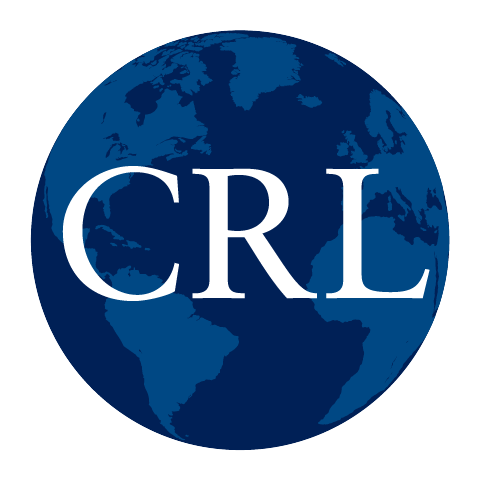Socialist Unity Party of Germany
 The Socialist Unity Party of Germany (, ; SED, ) was the founding and ruling party of the German Democratic Republic (East Germany) from the country's foundation in 1949 until its dissolution after the Peaceful Revolution in 1989. It was a Marxist–Leninist communist party, established in 1946 as a merger of the East German branches of the Communist Party of Germany and Social Democratic Party of Germany.
The Socialist Unity Party of Germany (, ; SED, ) was the founding and ruling party of the German Democratic Republic (East Germany) from the country's foundation in 1949 until its dissolution after the Peaceful Revolution in 1989. It was a Marxist–Leninist communist party, established in 1946 as a merger of the East German branches of the Communist Party of Germany and Social Democratic Party of Germany.The GDR was effectively a one-party state. Other institutional popular front parties were permitted to exist in alliance with the SED; these parties included the Christian Democratic Union, the Liberal Democratic Party, the Democratic Farmers' Party, and the National Democratic Party. These parties were largely subservient to the SED, and had to accept the SED's "leading role" as a condition of their existence. Long one of the most rigidly Stalinist parties in the Soviet bloc, the SED rejected the liberalisation policies of Soviet leader Mikhail Gorbachev, such as ''perestroika'' and ''glasnost'' in the 1980s, which would lead to the GDR's isolation from the restructuring USSR and the party's downfall in the autumn of 1989.
The SED was officially organized on the basis of democratic centralism. Theoretically, the highest body of the SED was the Party Congress, convened every fifth year. When the Party Congress was not in session, the Central Committee was the highest body, but since the body normally met only once a year most duties and responsibilities were vested in the Politburo and its Standing Committee. Members of the latter were the top leadership of both the party and the state, with the party's general secretary effectively having the authority of a dictator. From 1960, many of them concurrently served on the State Council of East Germany, replacing the President of the German Democratic Republic.
Ideologically, the party, from its foundation, adhered to Marxism–Leninism, and pursued state socialism, under which all industries in East Germany were nationalized, and a command economy was implemented. The SED made the teaching of Marxism–Leninism and the Russian language compulsory in schools. Walter Ulbricht was the party's dominant figure and effective leader of East Germany from 1950 to 1971. In 1953, an uprising against the Party was met with violent suppression by the Ministry of State Security and the Soviet Army. In 1971, Ulbricht was succeeded by Erich Honecker who presided over a stable period in the development of the GDR until he was forced to step down during the 1989 revolution. The party's last leader, Egon Krenz, was unsuccessful in his attempt to retain the SED's hold on political governance of the GDR and was imprisoned after German reunification.
The SED's long-suppressed reform wing took over the party in the autumn of 1989. In hopes of changing its image, it reorganized as the Party of Democratic Socialism (PDS), abandoning Marxism–Leninism and declaring itself a democratic socialist party. It received 16.4% of the vote in the 1990 parliamentary elections. In 2007, the PDS merged with Labour and Social Justice (WASG) into The Left (''Die Linke''), the sixth largest party in the German Parliament following the 2021 federal election. Provided by Wikipedia
-
81Plauen [Germany] : Sächsische Volkszeitung GmbH,v. ; 47 cm.“...Sozialistische Einheitspartei Deutschlands. Land Sachsen...”
-
82Döbeln [Germany] : Sächsische Volkszeitung GmbH,v. ; 47 cm.“...Sozialistische Einheitspartei Deutschlands. Land Sachsen...”
-
83Leipzig [Germany] : [Sächsische Volkszeitung],v. ; 49 cm.“...Sozialistische Einheitspartei Deutschlands. Land Sachsen...”
-
84Published 1946Dresden [Germany] : [Sächsische Volkszeitung], -1946.v. ; 49 cm.“...Sozialistische Einheitspartei Deutschlands. Land Sachsen...”
-
85Dresden : Sozialdemokratische Partei Deutschlands, Landesgruppe Sachsen,v. : ill. ; 49 cm.“...Sozialistische Einheitspartei Deutschlands. Land Sachsen...”
-
86Published 1946Eisleben : Volks-Zeitung G.m.b.H., -1946.v. : ill. ; 48 cm.“...Sozialistische Einheitspartei Deutschlands für die Provinz Sachsen...”
-
87Published 1946Magdeburg : Buchdruckerei der Volks-Zeitung, -1946.v. : ill. ; 47-51 cm.Also available on microfilm from New York Public Library.“...Sozialistische Einheitspartei Deutschlands für die Provinz Sachsen...”
-
88Published 1946Halle [Germany] : "Volksblatt" Druckerei und Verlagsgesellschaft, -1946.v. : ill. ; 47 cm.“...Sozialistische Einheitspartei Deutschlands für die Provinz Sachsen...”
-
89Published 1946Torgau : Volks-Zeitung, -1946.v. : ill. ; 47 cm.“...Sozialistische Einheitspartei Deutschlands für die Provinz Sachsen...”
-
90Published 1946Potsdam : A.W. Hayn's Erben, -1946.v. : ill. ; 48 cm.“...Sozialistische Einheitspartei Deutschlands der Provinz Mark Brandenburg...”
-
91Potsdam : A.W. Hayn's Erben,v. : ill. ; 48 cm.“...Sozialistische Einheitspartei Deutschlands der Provinz Mark Brandenburg...”

